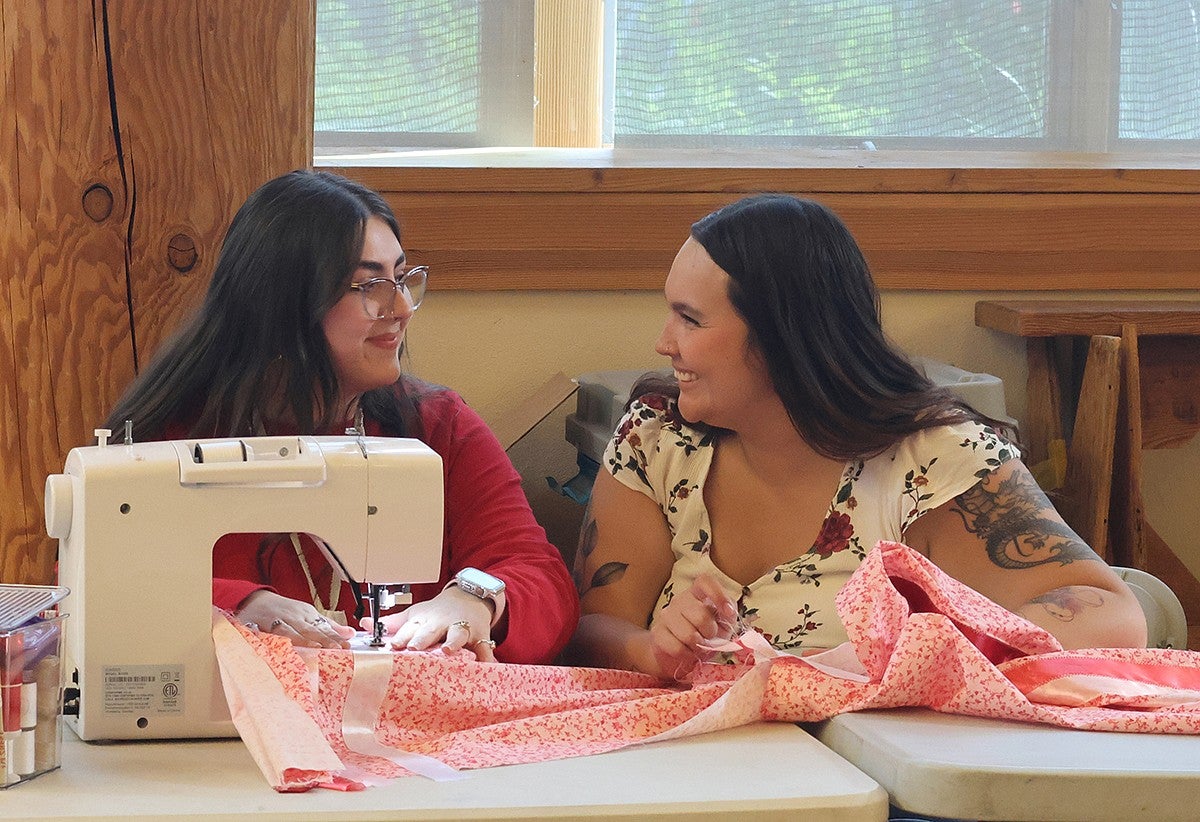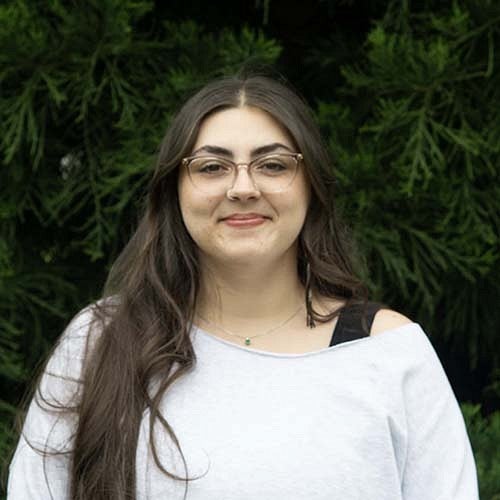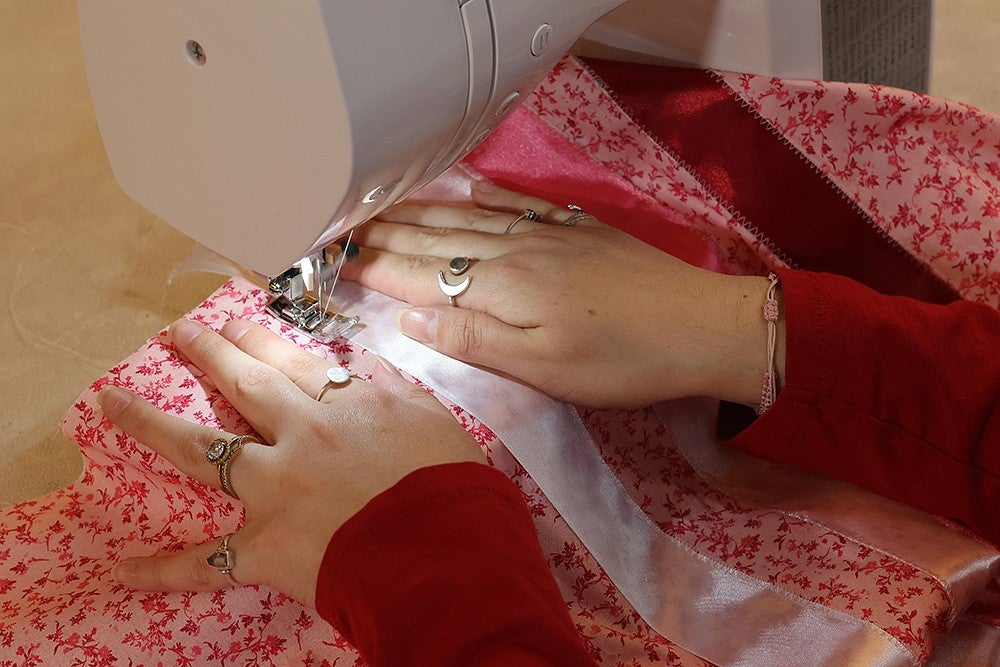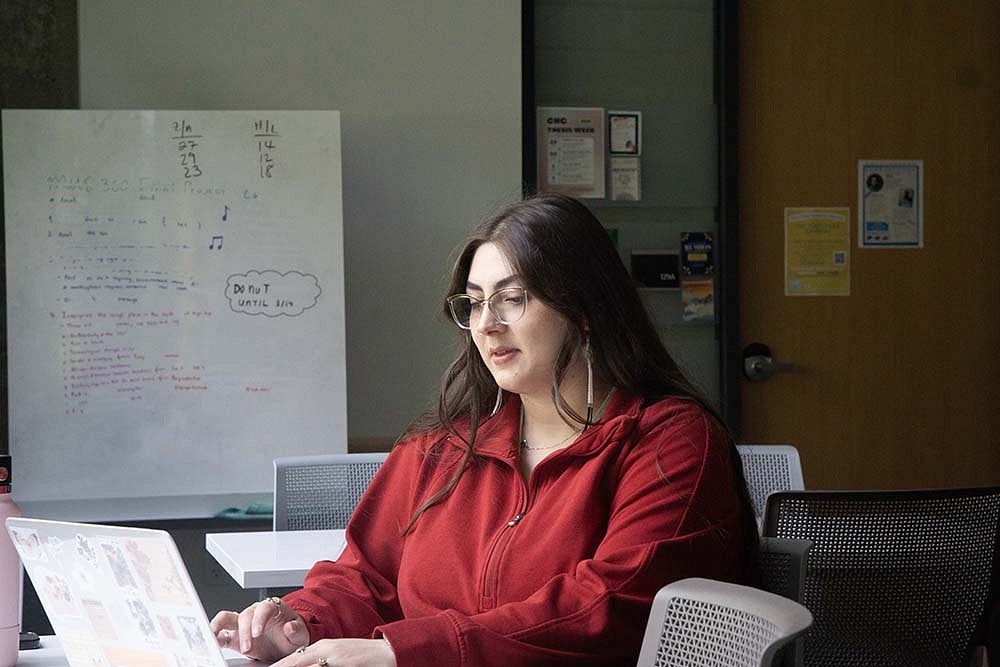
Finding her roots
When Haley Potter recalls her middle school days, they make her shudder.
At a time when most kids are experiencing their first crush and gossiping about friends and foes, Potter was going through a nightmare: She was homeless.
“My family experienced some tough times,” recalls Potter, now a Family and Human Services major with a minor in Spanish. “We didn’t have a home. We moved around to stay with friends. They made fun of my shoes. I didn’t use social media because I didn’t want them to see where I was living. It was hard to be in school with kids who had things.”
She remembers taking a long trek in the opposite direction to get to where the family was staying at the time. “I always had to find ways around what was considered normal.”
By the time she was in high school in Portland, Potter made a promise to herself: She was going to shed her life, make it into a good college and make a future for herself. She did well and got into the Clark Honors College.
She applied herself to a strict regimen of getting up early, making sure she was prepared for classes and taking care of her physical and mental health. She sat in the front in her classes, paying attention to every detail coming from her professors. And her grades soared.
“I worked hard and learned how to advocate for myself,” she says. “A lot of it hinged on the fact that I knew my education was going to be the thing that would get me out of all these struggles.”

Haley Potter
Hometown: Portland
Major/Minor: Family and Human Services; Spanish
Coffee or tea: Tea
Song on repeat: “DeBÍ TiRAR MáS FOToS” by Bad Bunny
Favorite experience from the CHC: I’d say my favorite experience from the CHC is seeing my thesis project finally come together! Being able to see all my hard work from my survey start to pay off has been a wonderful and validating feeling.
Thesis title: “The Perceived Impact of Indigenous Language Exposure on the Health, Well-being, and Community Connection of Indigenous College Students”
Advice for incoming first-years: Get involved! Make as many connections as you can and get involved on campus and in the community.
This summer, I can’t wait for: I would say a relaxing and stress-free summer, but since I’m starting grad school in the fall I have a lot of things to finish planning! Rather, I’m excited for celebrating my graduation this summer and preparing to further my education.
I’m grateful for: Having the opportunity to reconnect with my heritage and culture at the Many Nations Longhouse, and finding a supportive community that shares similar values, experiences, and passions!
Next steps: I’m starting Pacific University’s Master of Social Work program in the fall.
Still, there was something missing. Potter had made a few friends, but she felt adrift. It was in her junior year that she decided to explore her and her mother’s Indigenous roots. As a member of the Ojibwe/Chippewa tribe, she realized that UO had a ready-made Native population, most of which was centered around activities at the Many Nations Longhouse on the south side of campus.
“As a kid, I was so disconnected from my culture,” Potter says. “I wanted to connect with it but not just in a passing way. It really has been an important step for me.”
The Longhouse factored into Potter’s life every day, she says. It was a place to go between classes for a break. It was a destination where she knew she could meet up with other Indigenous students and share both the joys and concerns of being young adults in college. It was a haven for people to share a meal or work on craft projects tied to Native culture.

Jorney Baldwin serves as the academic counselor for the Home Flight Scholars program at UO. She serves as the primary advisor to 150 Indigenous students on campus, helping them navigate their academic steps through graduation and beyond.
She acknowledges that Potter has found strength in connecting with her roots and the two meet regularly at the Longhouse. “You can’t get her out of there,” Baldwin says, laughing. “It is a true home for her. I really enjoy watching her and how she shows kindness to others as a core value.”
At a recent gathering at the Longhouse, Baldwin and Potter sat at sewing machines to connect ribbons, beads and fabrics to the traditional outfit Potter plans to wear at graduation.
Potter says she feels grounded in her culture now, a feeling that wasn’t easy to come by early on. “I have friends here. I find strength here. It is a place of immense belonging for me,” she says. “My journey here has helped me recognize my own strengths and what I value. It’s helped push me through. It changed my life.”
At the Honors College, Potter conducted research on how Native languages – which in some tribes have been lost over time – can provide a level of support for Indigenous students. She spent months looking at data and gathering information about how college students cope in the high-stress environment of higher education.
Her thesis was titled “The Perceived Impact of Indigenous Language Exposure on the Health, Well-being, and Community Connection of Indigenous College Students.” And completing it meant more than just finishing an Honors College requirement to graduate. It was personal.

“It connects to how and why I came to college in the first place,” Potter says. “I’m not like everyone else. I don’t carry the privilege of having money, food and care. There was no way I’d take my experience for granted. It’s what I thought about when I was doing my research. It carried me.”
As a Family and Human Services major, Potter says she wants to find ways to give back to her community and beyond. She wants to help young people so they can find resources such as counseling, therapy and other services if they are facing adversity in their lives.
Throughout her academic career, Potter relied on a connection with Emma Bjorngard Basayne, the advising center operations director for the UO’s College of Education.
Bjorngard Basayne helped Potter with her thesis, along with providing assistance with the application process for graduate school. She notes that Potter’s career will be bolstered by her ability to connect with people on a human level.
“She has a very warm personality, and she really works to establish trust and connections in that way that others know is genuine,” Bjorngard Basayne says.
When Bjorngard Basayne was out last year on maternity leave, Potter stayed in touch. “It wasn’t because she had to,” Bjorngard Basayne says. “It’s because she wanted to. I was so touched when she brought my baby a gift and wrote a card to me. She treasures positive relationships.”
Potter sees herself working potentially as a therapist, and she wants to work with students of all ages. Next year, she will attend Pacific University as a graduate student in the Master of Social Work program, which lasts for two years. She plans to commute from Portland so she can remain close to her family and her boyfriend.
“I know my next steps won’t be easy,” Potter says. “The Honors College has taught me that not everything is meant to be a struggle but that you have to lean into your work, embrace it, and not fear it. I understand fully what it means to be an Indigenous student and knowing my identity only makes me stronger.”

